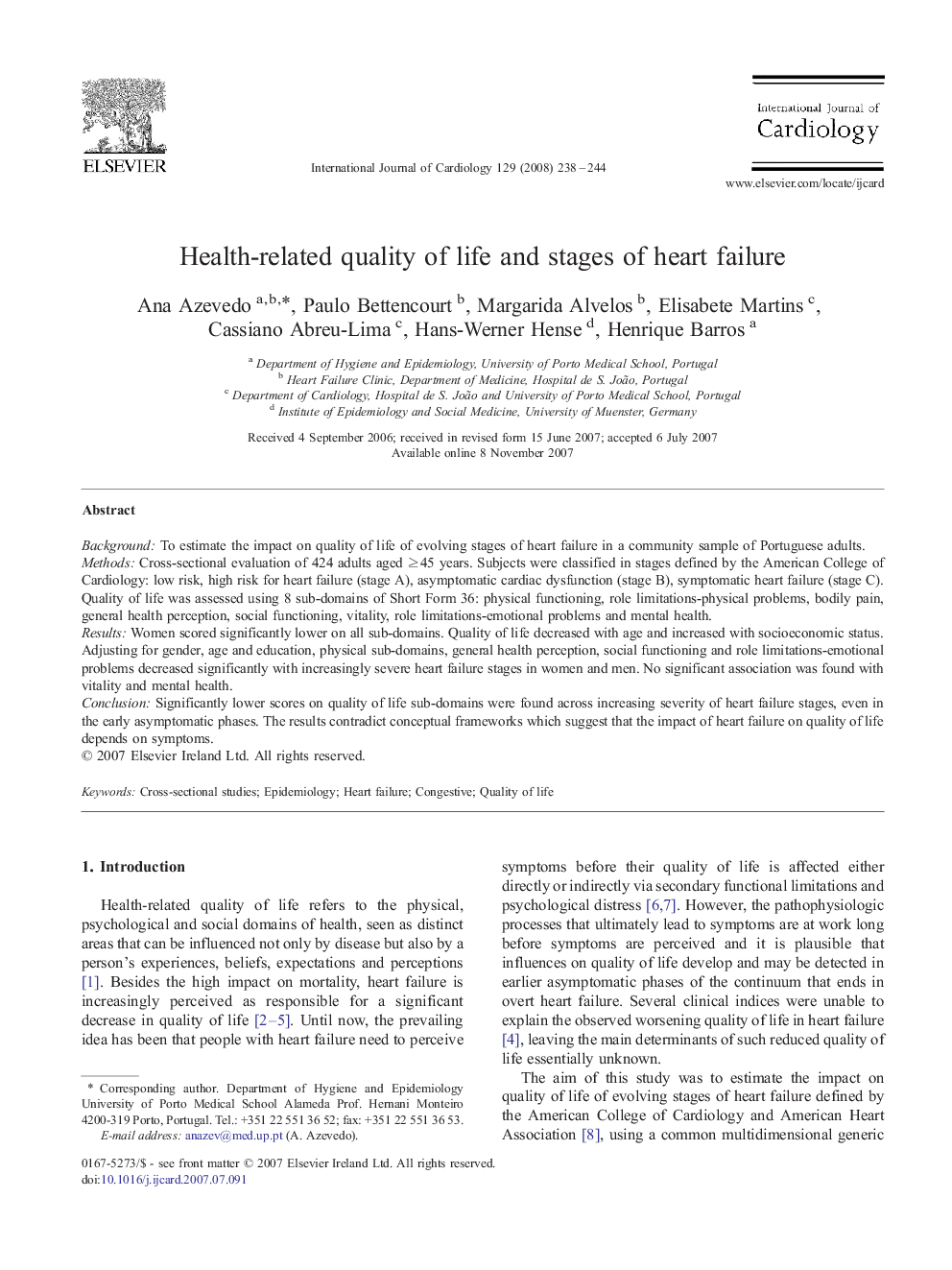| Article ID | Journal | Published Year | Pages | File Type |
|---|---|---|---|---|
| 2934424 | International Journal of Cardiology | 2008 | 7 Pages |
BackgroundTo estimate the impact on quality of life of evolving stages of heart failure in a community sample of Portuguese adults.MethodsCross-sectional evaluation of 424 adults aged ≥ 45 years. Subjects were classified in stages defined by the American College of Cardiology: low risk, high risk for heart failure (stage A), asymptomatic cardiac dysfunction (stage B), symptomatic heart failure (stage C). Quality of life was assessed using 8 sub-domains of Short Form 36: physical functioning, role limitations-physical problems, bodily pain, general health perception, social functioning, vitality, role limitations-emotional problems and mental health.ResultsWomen scored significantly lower on all sub-domains. Quality of life decreased with age and increased with socioeconomic status. Adjusting for gender, age and education, physical sub-domains, general health perception, social functioning and role limitations-emotional problems decreased significantly with increasingly severe heart failure stages in women and men. No significant association was found with vitality and mental health.ConclusionSignificantly lower scores on quality of life sub-domains were found across increasing severity of heart failure stages, even in the early asymptomatic phases. The results contradict conceptual frameworks which suggest that the impact of heart failure on quality of life depends on symptoms.
